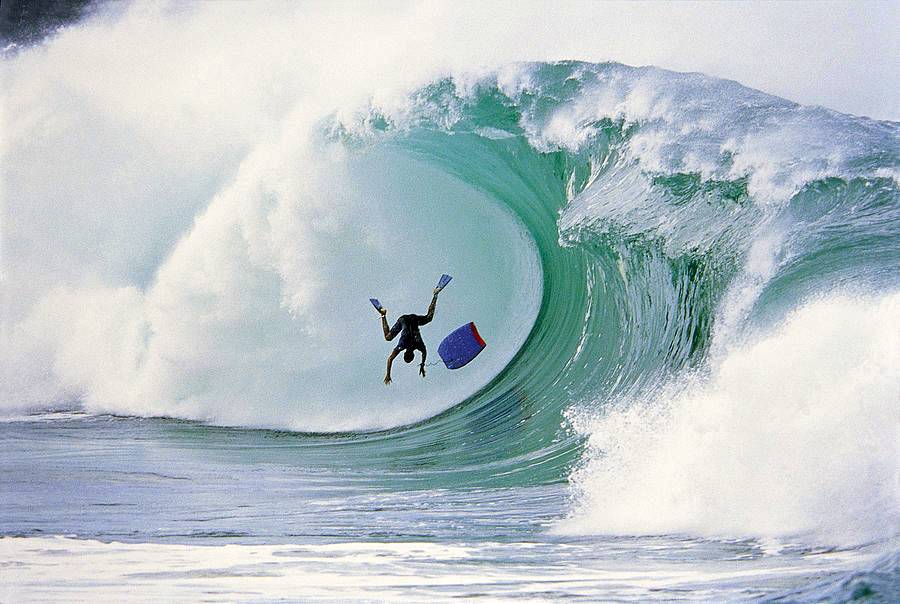Surfers, Swimmers; the COVID-19 Ocean Risk Factor
Hawaii’s beaches remain closed in an attempt to keep people from congregating on the shore and spreading the coronavirus. Recently, there is local talk story circulating about of what happens when you’re in the ocean, and a belief that the ocean’s salt water will purify things, making it a safe haven from the COVID-19 virus.
An atmospheric chemist at Scripps Institution of Oceanography, Dr. Kim Prather, believes that may not be the case. She has found that …“all the safety assumption behind the rules for six-foot social distancing, especially when you’re at the beach and in the water, do not apply.”
Prather is especially concerned when surfers huddled in a tight pack, positing themselves for the next wave, and placing themselves at potential risk of viral infection. Prather comments are worth considering, after all, she is an expert on how tiny microorganisms get lofted into the air hitchhiking on aerosols.
She warned that the COVID-19 virus can bind itself to microscopic aerosol (airborne) particles which can be transmitted by groups of people in close proximity — not only on the beach, but in the water as well.
Prather says the data indicates viruses can remain alive in saltwater for days, if not months.
Dish soap kills the virus in the same way it breaks down fat baked into a frying pan, yet the same lipid envelope surrounding the virus structure makes it resistant in saltwater. The fatty envelope encasing coronaviruses could float near the ocean surface where waves can whip particles into the air according to Dr. Prather.
Many known viruses have been swept up into the air from sea spray. The viruses tend to hitch rides on smaller, lighter, organic particles suspended in air and gas, meaning they can stay aloft in the atmosphere longer.
Some evidence shows viruses can remain viable after getting caught in weather currents dispersing microbes across very distant oceans.
Science has already demonstrated that an infection can spread beyond direct contact from contaminated surfaces or through droplets from sneezes and coughs within close proximity to an infected person.
Surf or Swim and Don’t Worry … maybe not just yet
Scientists worldwide are on a fast track to unlock the virus characteristics, yet so far, neither the World Health Organization, the U.S. Centers for Disease Control and Prevention nor local health agencies have warned that the virus can be spread by ocean spray or coastal breezes.
Jacksonville University’s Dr. Anthony Ouellette, professor of biology and chemistry, sees no need for concern yet. “No evidence supporting being concerned about water at the beaches. Being concerned about aerosolized COVID is absolutely valid, but I don’t see a good connection of dots here. Not to say, of course, that there is no possibility, but sticking with what I know, I am not concerned.”
Quellette says he’s wary the virus has been detected in sewage, but proper wastewater treatment facilities kill the vast majority of pathogens.
For now, there is little concern until the beach ban is lifted. Until then, scientists have more time to study the novel virus risks before the beaches are open again.



Leave a Reply
Join the Community discussion now - your email address will not be published, remains secure and confidential. Mahalo.